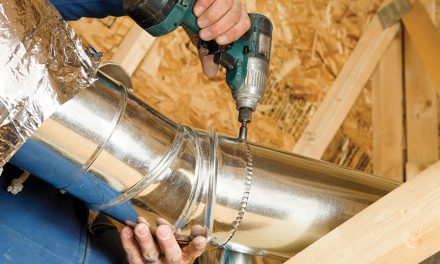When the pandemic shut the U.S. down, the probability that training would also fall by the wayside was huge. However, many distributors and other industry training organizations turned to technology to keep their teams and contractor customers up to speed.
Doug Young says Behler-Young already had some capabilities in conducting webinars and online training. “We pushed forward with streaming technology,” he explains, “so our contractor customers don’t have to attend in person. They go online, and we stream it to their office or home, and they can participate.
“We’re using technology to help us advance the education of our customers as well as our internal staff. Technology plays a significant role in all aspects of our business. In fact, that may be an understatement,” Young says.
“Irresistible” Training
In the training world, they use a phrase to describe how to attract people to seminars and classes. They say you must create “irresistible” training. Interestingly, this can mean many different things to different people. Chad McAllister sees this as targeting training programs by individual markets.
“For example,” he explains, “If we hold a steam humidification class in the Florida panhandle, we will likely have a low turnout. However, if we hold that same class anywhere in Maryland or the north, we will likely have a packed classroom. You must know your market and contractor needs and bring quality and relative training to that base.”
From Craig Broadfield’s perspective, “The key to a successful training program is determined by the amount of participation from your contractors.
“A true partnership works better if both sides feel the information being conveyed and received is useful toward each party’s goals. At Air Management, we try to make our training irresistible by using our training funds for classes we host with groups like National Comfort Institute and never charging our dealers/partners for training we provide otherwise,” Broadfield says.

If done right, Broadfield adds that training also builds loyalty. “Our goal is to provide a high level of hospitality and a comfortable and flexible space so everyone can feel at home. We feel that if contractors feel comfortable here, they will continue to join us.”
Tracy Johnson says that RE Michel’s internal training programs most certainly build loyalty among their employees. “If we consistently bring knowledge and training to our customers, loyalty will also follow.”
Training Development
Another aspect of making training irresistible is making the contractors part of the planning process. While it’s the job of the contractor management team to identify the skill gaps within their organization, it is equally essential for distributor partners to learn about those gaps and create training programs around them.
“RE Michel reviews our training programs annually,” says Johnson. “We make changes and additions based on our customers’ feedback and HVAC Industry direction.”
The same holds true for the team at Air Management. Craig Broadfield says that “dealer input is always at the forefront of our planning process. Between their input, plus the content and the PEU credit hours needed for licensing, we try to find a good mix of topics to present so that contractors want to join and don’t view the training as a waste of their time.”
Partnering for the Future
The idea of partnering with distributors is not new. But it is vital because partnerships benefit both parties and help both be more successful. Training does the same thing. As Craig Bradfield says, “If contractors continue to learn and grow, they will continue to strive for and achieve success. As their partner, we share the rewards of their success through their continued business.”
Partnerships are the heartbeat of the marketplace. HVAC distributors who value providing training to their contractor customers see this as a vital part of what they bring to the table.













Recent Comments